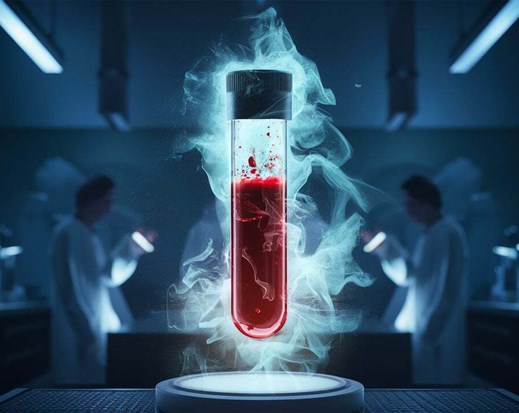



A Haemophilus is a rare genetic disorder that may result from mutations in different genes in which blood clots do not occur properly, resulting from the lack or absence of a clotting agent in the blood (proteins), where the sufferer bleeds more after being infected than the natural person. It can also damage organs and tissues, and the severity of the injury is determined by the amount of deficiency in the blood, The lower the coagulation factors, the more severe the disease.
Types:
• Hemophilia (a) (Traditional)
• Hemophilia (b)
• Hemophilia (c)
• Acquired hemophilia: It is not caused by inherited genetic mutations, as this condition is characterized by abnormal bleeding in the skin, muscles, or other tissues, and the causes of injury are unknown.
Risk factors:
inheritance.
Sex, males are more susceptible than females.
Cancer
Multiple sclerosis
Drug interactions
Symptoms:
Symptoms can be mild to severe; Symptoms in infected persons may include:
Frequent vomiting
Sleepiness or lethargy
Dual Vision
fibrosis and stiffness in the joints, due to repeated bleeding, lead to inflammation in the post-bleeding phase.
Feeling weak and unbalanced
Easy occurrence of bruises or blood gatherings.
Bleeding mouth and gums.
Blood in the urine or stool.
Repeated nasal bleeding.
Male babies are diagnosed at birth with hemophilia because they bleed more than usual after circumcision
Women with the disease may have unusually heavy menstrual cycles and may be easily bruised, excessive bleeding after childbirth
Diagnosis:
Hemophilia is diagnosed through blood tests to determine whether blood clotting agents are low or missing, and there are three ways to determine whether or not a person is infected:
• Family history.
• Laboratory analysis: comprehensive blood test to test the rate of thrombosis, and determine the type of hemophilia and the degree of risk.
Treatment:
There is no definitive remedy for it; But there is a treatment aimed at preventing bleeding complications, especially bleeding of the head or joints; Treatment includes:
regular compensation of the coagulation factor.
Newer treatments with no clotting agents are also used.
Genetically modified coagulation agent drugs; to prevent and treat bleeding for a long time; These drugs are administered by injection into a person's vein or under the skin.
Preventive treatment: Some drugs are used to prevent bleeding attacks.
Bits of Advice for hemophiliacs:
- Undertake an annual comprehensive examination.
- Get hepatitis A and B vaccines.
- Treat bleeding early and conveniently.
- Ensure that the medical team supervises treatment of joint bleeding; The patient is provided with a clotting agent as soon as possible.
- Maintain a healthy weight to protect joints.
- Avoid taking non-steroidal anti-inflammatory drugs (painkillers) (e.g. aspirin); Some may affect the blood's ability to clot.
- Ensure that the doctor is consulted before undergoing any surgery, to take the necessary precautions.
- Ensure that children are protected from equipment and tools in the home or elsewhere; to prevent injuries and bleeding.
- Parents should know how to examine the child and identify signs of bleeding.
- Move away from violent activities that may lead to injuries and bleeding (e.g. football, wrestling).
FAQs:
1- Are aspirin and anti-thrombolysis drugs safe for hemophilia sufferers?
People with hemophilia should not take aspirin or other non-estrogenic anti-inflammatory devices.
2- Are there drugs that can exacerbate bleeding?
There is a range of drugs that increase bleeding (e.g. aspirin), as well as antidepressants, anti-clots, and increased blood fluidity; So a hemophilia patient should consult a doctor before taking any medication.
3- Can it be determined whether the fetus has hemophilia during pregnancy?
Yes, it can.
When should you see a doctor?
• unstoppable bleeding.
• Pain and bloating of the joint (joint bleeding).